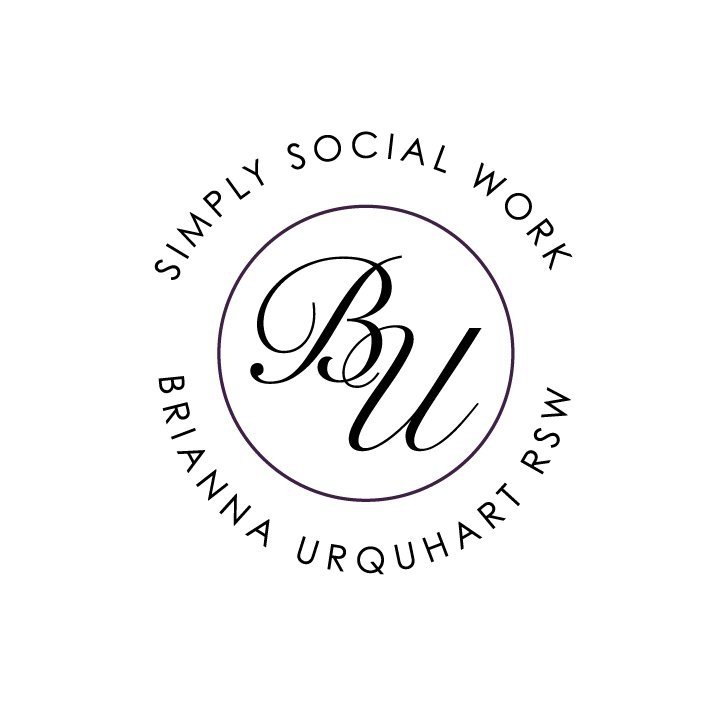What Is a Social Worker in Ontario?
Working in a practice with a lot of different professionals, there’s a few questions I get asked a lot:
What’s a social worker?
What can a social worker do?
What’s the difference between a social worker and [insert professional here]?
Social work is a practice-based profession that responds to the needs of individuals, groups, and communities by addressing barriers, inequality, and injustice. One of social work’s primary principles is the pursuit of social justice.
Practice & Roles
Here are a few examples of career paths open to social workers:
Advocacy and Community Activism
Healthcare (physical, rehabilitative, mental health, etc)
Immigration
Child Protection
Justice & Corrections
Employment
Housing
Education
Administration & Management
International Social Work
Policy & Planning
Politics
Research
So, no, social workers don’t just “take people’s kids away.” While this a problematic stereotype for many reasons, there’s also the simple fact that the majority of social workers do not even work in the child protective system at all, and as I highlighted, it is only one area out of many that are available for social workers to pursue.
Social workers can take a variety of roles across many different sectors. We can be therapists or counsellors, advocates, case managers, or educators. We can be leaders, managers, and facilitators. We can work at a macro level (meaning large-scale, such as at a policy-level) to micro (meaning at the individual level).
Principles
There are a few principles that guide all social workers across Canada, regardless of location or professional focus. Social workers take a strengths-based perspective with our clients, recognizing their resiliency, resourcefulness, and capacity. Social workers are there to support the client, rather than direct or dictate.
Essentially, we focus on supporting and empowering people and communities to create change, address life challenges, and overcome traumatic events.
Education
Social workers have either a Bachelor’s degree in social work (BSW), a Master’s degree in social work (MSW), or both from accredited universities. Your social worker may even have a PhD, although this isn’t as common currently. A BSW is traditionally a 4-year program in Canada, with an MSW being an additional 1-2 years. You do not necessarily need a BSW to obtain your MSW, although many find this beneficial; many MSW social workers began in other fields, such as psychology or political science, and use social work as an opportunity to shift or expand their practice.
Regulation
Here in Ontario, social workers are regulated by the Ontario College of Social Workers and Social Service Workers, usually just called the OCSWSSW by the general public or the College by members.
In order to use the title “social worker” or “registered social worker”, you must be a member of the College.
The College exists to protect the public, rather than the professional. It sets rules and guidelines for our practice. It also provides support to ensure that we understand the different legislations that social work adheres to. But most importantly, they make sure that we’re continuing our education in order to develop professionally, and have the authority to investigate complaints for those who may be practicing outside of their scope.
This is different than a professional association, such as the Ontario Association of Social Workers (OASW), which is an optional membership organization that draws its authority from its members.
One aims to serve and support its members, the other protects the public.
As a member of the OCSWSSW, you get “RSW” behind your last name so that others know that you are registered. Hence, my name reads Brianna Urquhart, BSW RSW.
If you are working with someone who uses the title “social worker” but they aren’t registered with the OCSWSSW - you aren’t working with a social worker. This is important, because it means that they are unregulated and you do not have the ability to report them to the College should there be any malpractice. You are essentially unprotected, and that individual may be limited in what services they can legally provide.
You can check to see if your social worker is registered by visiting the OCSWSSW and typing their name into their provincial registry - and, if they are, make sure that they’re in Good Standing. If they aren’t in Good Standing, you’ll be able to read the investigation results and learn more.
Benefits
“Social justice” and “pursuit of change” tend to sound like vague and lofty goals, I know. You’re probably wondering: “but what can they do for me?”
A social worker is there to support you and connect you to the resources you need to succeed. Regardless of the field they are in, social workers have a wealth of knowledge about their communities, and it’s important for them to maintain as many referral relationships as possible.
Where a doctor will look at your physical symptoms, diagnose your health, and provide treatment, social work takes a biopsychosocial or systemic approach. We look at the whole picture of your life to see how every aspect intersects and affects your current situation.
And in finding a solution, we work with you, not for you.
Each client is the expert in their own lives. You have experiences, strengths, beliefs, supports, and skills that all can be utilized.
Social work is about connection and empowerment to improve wellbeing and create change not just with an individual. On a macro level, social work also recognizes the many barriers and social inequalities that exist in our larger systems and institutions.
Social workers must continually advocate and strive for large-scale and widespread change in order to improve the conditions that are holding our clients back.



